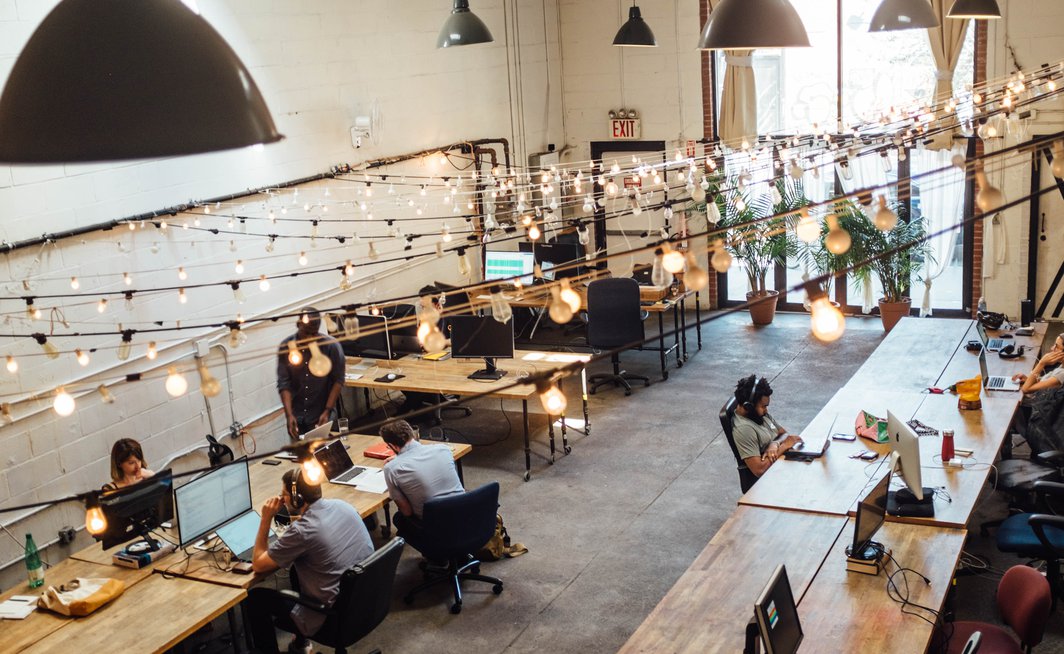Everything You Need To Know About Coworking

Coworking is on the rise, with remote work and hybrid setups proliferating worldwide.
Additionally, more people are freelancing or establishing businesses than ever before.
Data shows that the number of coworking spaces is increasing to cater for rising demand, with over 5 million people expected to use them by 2024.
So, what precisely is coworking? And who tends to use coworking spaces?
What Is Coworking?
Coworking is a modern work approach where individuals, often from different organisations or professional backgrounds, share a common working environment.
This could be anything from a professional office space to something more informal.
Collaborative coworking setups foster community, networking, knowledge exchange, and mutual growth.
Coworking helps workers beat the loneliness or isolation of working alone and delivers flexibility for digital nomads and other remote workers looking for safe, comfortable spaces to work with high-speed internet and other amenities and services.
What Is A Coworking Space?
A coworking space is a shared workspace designed to cater to freelancers, startups, and even larger companies.
Yes – coworking isn’t only for the self-employed. Many organisations now take advantage of flexible coworking spaces to leverage their flexibility as and when they need a more permanent physical base for their operations.
Modern coworking spaces provide modern office amenities – such as high-speed internet, meeting rooms, private desks, communal areas and cafes – but with the flexibility of monthly memberships or day passes.
Unlike traditional offices, these spaces prioritise a mix of private and communal work areas, driving collaboration and creativity.
Overall, coworking is about sharing a professional space with people from diverse backgrounds – both professionally and personally. That is part of their charm.
Why Use Coworking Spaces?
There are many reasons to use coworking spaces, including:
-
Flexibility: Most coworking spaces offer a range of membership options, from daily to monthly or yearly, allowing individuals and businesses to scale up or down as needed.
-
Networking Opportunities: Working alongside professionals from various fields can lead to potential collaborations, partnerships, or even leads.
-
Reduced Overhead: Startups and freelancers can have a professional workspace without the high costs of renting a full office.
-
Amenities: Many coworking spaces provide high-quality amenities and services, including printing services, meeting rooms, and high-speed internet.
-
Community and Support: Many spaces host workshops, seminars, and social events, helping to build a sense of community. You can find coworking spaces all over the world, from the hustle and bustle of San Francisco or London to the jungles of Costa Rica.
When Did Coworking Spaces Start?
In the modern sense, the concept of coworking began to take shape in the early 2000s.
It’s generally viewed that programmer Brad Neuberg opened the very first official coworking space in San Francisco in 2005. It was dubbed the San Francisco Coworking Space.
Neuberg's idea was to create a shared workspace and a sense of community among independent professionals, many working in San Fran’s budding tech industry.
Coworking rapidly evolved from there, somewhat evolving from the now-antiquated internet cafe.
In the early 2000s, working remotely was much tougher than it is now, as laptops were more cumbersome, internet connections slower, and robust IT infrastructure less common.
Who Uses A Coworking Space?
Coworking spaces attract a diverse crowd, including but not limited to:
-
Freelancers: Independent professionals from various fields seeking flexibility and a dedicated workspace.
-
Startups: Small teams needing an affordable office solution with networking opportunities.
-
Remote and Hybrid Workers: Employees of companies who work remotely and prefer a structured environment outside their homes.
-
Large Corporations: Increasingly, big companies are leveraging coworking spaces for project teams, remote employees, or to tap into the entrepreneurial spirit these environments offer.
-
Entrepreneurs: Those launching new ventures who want a dynamic environment conducive to brainstorming and collaboration.
Tips On Finding A Coworking Space
Luckily, the availability of coworking spaces has increased in recent years. You could even say modern coworkers are spoiled for choice!
Here’s how to pick an ideal coworking space:
-
Location: Ensure it's easily accessible for you, considering commute times and proximity to clients or partners.
-
Amenities: List your must-haves, whether high-speed internet, private meeting rooms, or 24/7 access.
-
Cost: Compare membership fees, but also consider the value of amenities, networking, and additional services.
-
Culture and Vibe: Visit potential spaces to get a feel for the community and atmosphere. Does it align with your work style and values?
-
Contract Flexibility: Consider spaces that offer month-to-month memberships or other flexible terms.
-
Reviews and Recommendations: Research online reviews and ask your network for their experiences.
Explore Spacepool’s Range of Coworking Spaces
Spacepool is a leading platform connecting professionals to a curated range of coworking spaces. These include smaller coworking spaces for individual workers to larger offices for teams.
We ensure that each space listed offers a blend of modern amenities, a vibrant community, and a conducive environment for growth.
Whether you're a solo freelancer, a growing startup, or a large or expanding team, Spacepool’s portfolio offers spaces to suit your needs.

